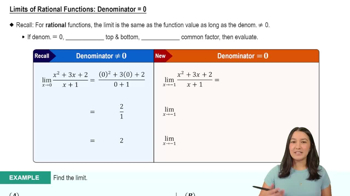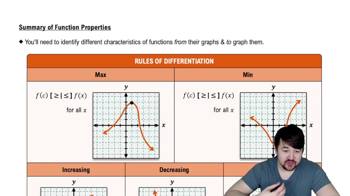Using limθ→0 sin θ / θ = 1
Find the limits in Exercises 23–46.
limt→0 sin(1 − cos t) / (1 − cos t)
 Verified step by step guidance
Verified step by step guidance Verified video answer for a similar problem:
Verified video answer for a similar problem:



 6:47m
6:47mMaster Finding Limits Numerically and Graphically with a bite sized video explanation from Patrick
Start learning